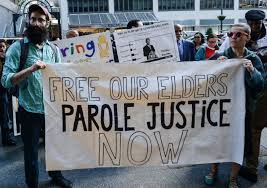Holding Smart City Projects Accountable – Sidewalk Labs Toronto
Around the world, countries are talking about the idea of, and developing plans to implement, so-called smart cities. Smart Cities are urban areas that use electronic data to collect information, which is then used to manage financial assets and other municipal resources. Data is collected from citizens and electronic devices, and is then processed and used to monitor and inform the management of traffic, transportation systems, hospitals, schools, law enforcement, water supplies, and other community services, such as libraries.
The Smart City concept uses information and communication technology to interact with the cities infrastructure and to monitor its development and evolution. Proponents claim it will increase efficiency. Information and Communication Technology is used to increase the contact between local citizens and government to reduce costs and enhance the quality and interactivity of urban spaces within cities. Critics say it vests too much power in profit-minded corporations, and that total connectivity may makes smart cities a hacker’s dream.
In 2018, the Canadian government launched a Smart Cities Challenge offering prizes up to $50 million dollars for towns and cities that will work to improve residents lives through innovation, data, and connected technology. A few months earlier, in October 2017, the Google-affiliated company Sidewalk Labs announced plans to build a neighborhood from the Internet up along Torontos waterfront in a spot known as Quayside. The goal is to create an advanced microgrid to power electric cars, bring down housing costs, improve recycling and use data to improve public services. The project has had support from Prime Minister Justin Trudeau who declared it a testbed for new technologies.
Guest – Bianca Wylie,an open government advocate with a background in technology and public engagement, Bianca leads work on public sector technology policy for Canada at Dgen Network and is a co-founder of Tech Reset Canada.
—-
The New York State Parole Board: Failures in Staffing and Performance

All people have in them a dream of being free again, writes D.B., a 40-year-old who has spent 21 years in prison. During this time, D.B has had a total of 12 hearings at the Department of Corrections: four postponements, two de novo hearings, and eight board hearings.
Like D.B., many inmates have the same dream of being free, but for those being reviewed by parole commissioners W. William Smith and Marc Coppola, their chances are slim. In an extensive report co-authored by the RAPP (Release Aging People in Prison) and the Parole Preparation Project, The New York State Parole Board: Failures in Staffing and Performance outlines the serious problems within the New York State Parole Board, focusing on the boards inability to perform while significantly under-staffed and allowing thecontinued malpractice of board commissioners Marc Coppola and W. William Smith.
W. William Smith has been on the board since 1996 when he was appointed by Governor George Pataki. He was re-appointed by Governor Cuomo in 2017. Although the rules and regulations around the Parole Board have been updated and modernized, Smith continues to deny parole to people convicted of violent crimes despite demonstrated rehabilitation.
Marc Coppola, like Smith, frequently denies parole because of a persons crimes rather than their demonstrated low level of risk to public safety. His political ties and financial gifts to the elected officials in charge of confirming parole board members suggests that he is not a fair or ethical candidate for the position of Parole Commissioner. Both Smith and Coppola have been known to be condescending and unprofessional in their interviews for the parole board.
Guest – Dave George, Associate Director ofRAPP or Release Aging Persons in Prison.
Guest ” Jose Saldana, Jose was recently released from prison after serving 38 years. He works with parole reform organizations and RAPP.
—————-



